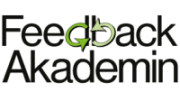We conduct a research on multi culture groups.
The research question is:
“How can feedback be used to accelerate the development of a multi-cultural work group, using a gestalt perspective?”
The research was inspired by action research and interactive research, where a group undergoing a change as the group learns about cultural differences, team development theories and feedback. The group members gets to use these theories to their own group and with these experiences the group participants becomes co-researchers and create theories about: how feedback can be used to develop multicultural groups by using feedback in various team development phases
In the research, I have developed a more comprehensive definition of feedback through literature studies to see how others have defined feedback and added what has been missing from my purpose.
What kind of multicultural groups are there? Click to learn more.

How do different cultural value dimensions affect how to use feedback in a workgroup / project?
Cultural value dimensions can be power distance, collective / individual focus, mastery / harmony, focus, etc.
How can feedback be used and where should be avoided in the group stages of development?
We use Susan Wheelans Integrated Group Development Model (also known as the GDQ) which is based on Tuckman’s model – Forming, Storming, Norming, Performing, Adjourning).
The reason we chose Wheelans model and Stefan Gunnarsson also been certified in the utility GDQ (Group Development Questionnaire), is that Wheelans model is based on solid research. GDQ is a tool to find out what stage a group is in and offers from this an effective method for developing and improving the efficiency of team work and management teams.
Wheelan describes four stages of maturity in a group’s development. A group considered to be simplified in the phase in which its main focus.
The four stages are:
1 – Affiliation & Security
2 – Opposition & Conflict
3 – Trust & structure
4 – work & Productivity
(when we are working with conflict, it is usually with groups that are in stage 2 …)
